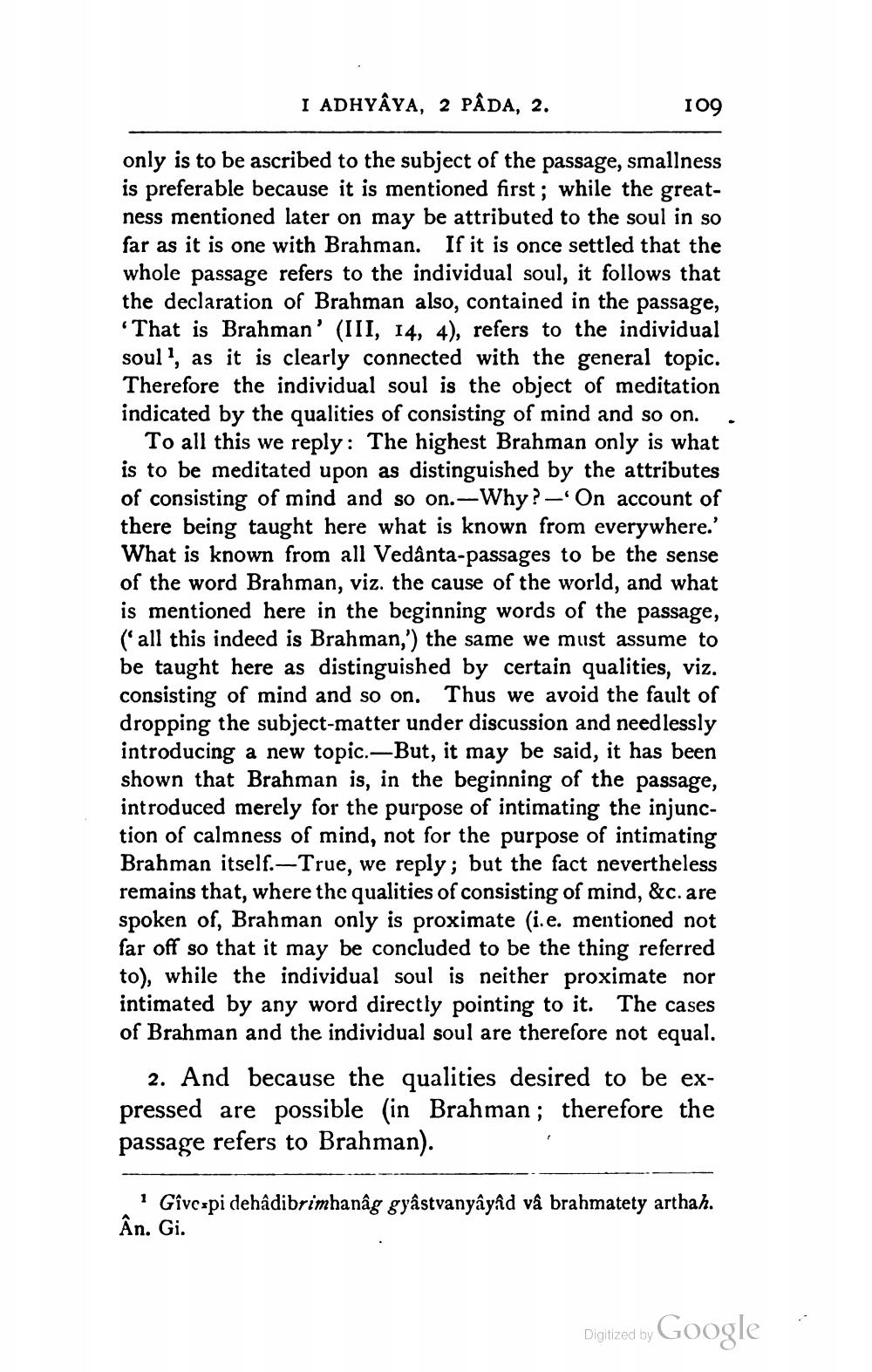________________
I ADHYAYA, 2 PÂDA, 2.
109
only is to be ascribed to the subject of the passage, smallness is preferable because it is mentioned first; while the greatness mentioned later on may be attributed to the soul in so far as it is one with Brahman. If it is once settled that the whole passage refers to the individual soul, it follows that the declaration of Brahman also, contained in the passage, "That is Brahman' (III, 14, 4), refers to the individual soul', as it is clearly connected with the general topic. Therefore the individual soul is the object of meditation indicated by the qualities of consisting of mind and so on.
To all this we reply: The highest Brahman only is what is to be meditated upon as distinguished by the attributes of consisting of mind and so on.—Why? - On account of there being taught here what is known from everywhere.' What is known from all Vedanta-passages to be the sense of the word Brahman, viz. the cause of the world, and what is mentioned here in the beginning words of the passage, (all this indeed is Brahman,') the same we must assume to be taught here as distinguished by certain qualities, viz. consisting of mind and so on. Thus we avoid the fault of dropping the subject-matter under discussion and needlessly introducing a new topic.—But, it may be said, it has been shown that Brahman is, in the beginning of the passage, introduced merely for the purpose of intimating the injunction of calmness of mind, not for the purpose of intimating Brahman itself.—True, we reply; but the fact nevertheless remains that, where the qualities of consisting of mind, &c. are spoken of, Brahman only is proximate (i.e. mentioned not far off so that it may be concluded to be the thing referred to), while the individual soul is neither proximate nor intimated by any word directly pointing to it. The cases of Brahman and the individual soul are therefore not equal.
2. And because the qualities desired to be expressed are possible in Brahman; therefore the passage refers to Brahman).
? Gîvespi dehâdibrimhanâg gyâstvanyâyâd vâ brahmatety arthah. Ân. Gi.
Digitized by Google




